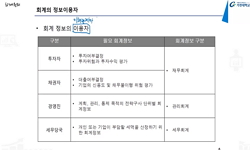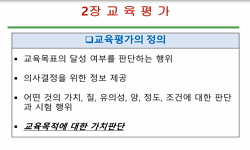Under multi-task setting, agents can decide on effort intensity as well as on effort allocation across all relevant tasks. As agents allocate unobservable efforts over multi-tasks, the principal, unfortunately, observes only the results. Agents have...
http://chineseinput.net/에서 pinyin(병음)방식으로 중국어를 변환할 수 있습니다.
변환된 중국어를 복사하여 사용하시면 됩니다.
- 中文 을 입력하시려면 zhongwen을 입력하시고 space를누르시면됩니다.
- 北京 을 입력하시려면 beijing을 입력하시고 space를 누르시면 됩니다.

정보비대칭과 다차원적 업무하에서 CEO의 노력배분 = Information Asymmetry and CEO Effort Allocation Under A Multi-Task Setting
한글로보기https://www.riss.kr/link?id=A99726877
- 저자
- 발행기관
- 학술지명
- 권호사항
-
발행연도
2012
-
작성언어
-
- 주제어
-
KDC
300
-
등재정보
KCI등재
-
자료형태
학술저널
- 발행기관 URL
-
수록면
255-292(38쪽)
- 제공처
- 소장기관
-
0
상세조회 -
0
다운로드
부가정보
다국어 초록 (Multilingual Abstract)
Under multi-task setting, agents can decide on effort intensity as well as on effort allocation across all relevant tasks. As agents allocate unobservable efforts over multi-tasks, the principal, unfortunately, observes only the results. Agents have chance to maximize their benefits using information asymmetry nested in the nature of multi-tasks setting. It, therefore, is very important to investigate how agents respond to information asymmetry when they allocate their efforts over their various tasks. We address this issue using unique and rich date set that we have manually collected from the Korean Government` annual reports on its performance evaluation public enterprises. The results show that agents allocate greater efforts on performance measures used to evaluate their diverse tasks than on those used to evaluate only a single task. In addition, the results document that uneven effort allocation are much greater as information asymmetry between the principal and agents increases. Our findings imply that agents` effort allocation is determined by the relative benefits they derive on the various tasks. In addition, it is inferred that agents opportunistically utilize information asymmetry imbedded in multi-task agency contract, when they allocate efforts.
동일학술지(권/호) 다른 논문
-
- 한국회계학회
- 이상완 ( Sang Wan Lee )
- 2012
- KCI등재
-
사업결합 시 무형자산별 평가기법 및 평가절차에 대한 실무지침 및 교육교재
- 한국회계학회
- 권수영 ( Soo Young Kwon )
- 2012
- KCI등재
-
K-IFRS 도입 후 세무 상 변화에 대한 국내 은행의 사례연구
- 한국회계학회
- 최원욱 ( Won Wook Choi )
- 2012
- KCI등재
-
현대건설의 구조조정과 부활 무상감자와 대출금 출자전환을 중심으로
- 한국회계학회
- 최종학 ( Jong Hag Choi )
- 2012
- KCI등재




 KISS
KISS







